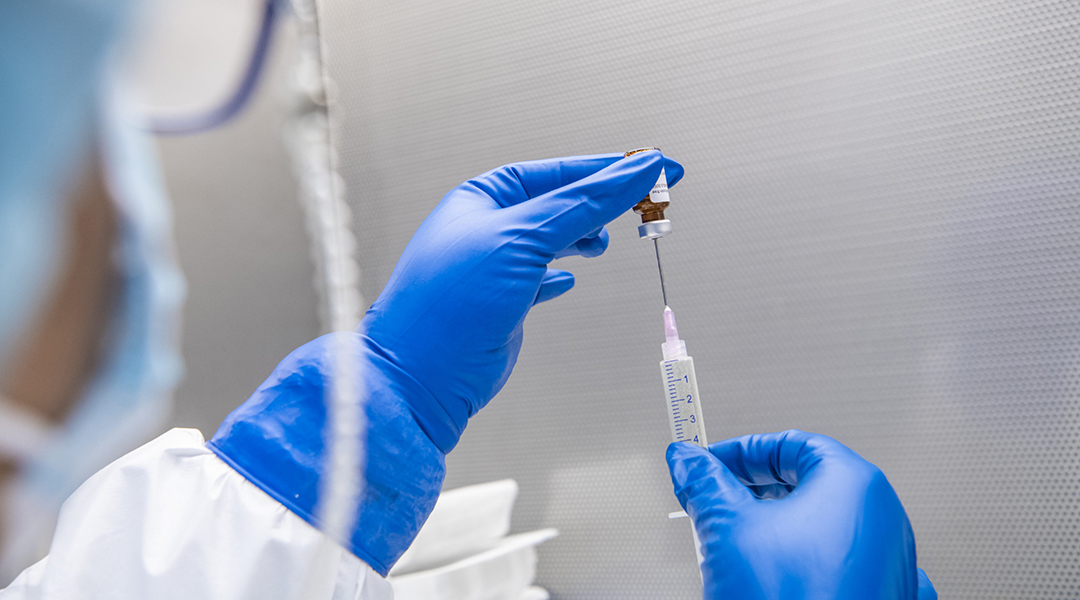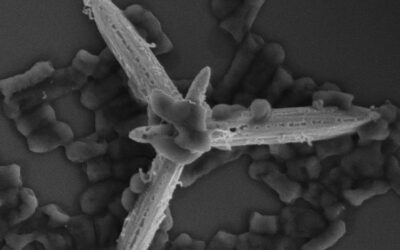A first-of-its-kind breast cancer vaccine has just entered clinical trials. The phase I study will aim to determine the vaccine’s tolerated dose in patients suffering from early-stage triple-negative breast cancer as well as characterize the body’s immune response.
“We are hopeful that this research will lead to more advanced trials to determine the effectiveness of the vaccine against this highly aggressive type of breast cancer,” said G. Thomas Budd, of Cleveland Clinic’s Taussig Cancer Institute and principal investigator of the study. “Long term, we are hoping that this can be a true preventive vaccine that would be administered to healthy women to prevent them from developing triple-negative breast cancer, the form of breast cancer for which we have the least effective treatments.”
Triple-negative breast cancer is one of the most aggressive forms of breast cancer, resulting in a disproportionately high percentage of deaths. The cancer also has a high rate of recurrence despite only accounting for 12-15% of breast cancer cases. It does not have the characteristic biological markers that respond to typical hormonal or targeted therapies. An effective treatment strategy is therefore sorely needed.
In general terms, vaccines are used to generate an immune response against a given pathogen, allowing the body to prepare a defense that eliminates or else minimizes the severity and degree of illness. The difficulty in developing preventative cancer vaccines arises from the fact that tumor antigens are often variations of the body’s own proteins. If targeted, this would likely result in profound autoimmune complications if used in a preventative setting, said the Clevland Clinic researchers.
To get around this, the new vaccine targets α-lactalbumin, a specific protein found in triple-negative breast cancers but not in normal tissue. The body “retires” α-lactalbumin after lactation, so it is not found in aging breast tissue, though it is up-regulated in this specific type of cancer. By activating the immune system to recognize it, the vaccine provides preemptive protection against tumors. The safety and effectiveness of this approach was demonstrated in mouse models, where a single vaccination was found to prevent breast tumors formation, while also slowing or halting the growth of existing tumors.
This vaccine approach represents a potential new way to control breast cancer,” said Vincent Tuohy, immunologist and the primary inventor of the vaccine. “The long-term objective of this research is to determine if this vaccine can prevent breast cancer before it occurs, particularly the more aggressive forms of this disease that predominate in high-risk women.”
The phase I trial will include 18 to 24 patients who have completed treatment for early-stage triple-negative breast cancer within the past three years and are currently tumor-free but at high risk for recurrence. During the course of the study, participants will receive three vaccinations, each two weeks apart and will be closely monitored for side effects and immune response. The study is estimated to be completed in September 2022.
Once complete, a subsequent trial is predicted to involve healthy, cancer-free women at high risk for developing breast cancer who have undergone voluntary bilateral mastectomy to lower their risk of developing this cancer. These women typically carry mutations in either the BRCA1 or BRCA2 gene and are therefore at risk of developing triple-negative breast cancer or have high familial risk for any form of breast cancer.
“This vaccine strategy has the potential to be applied to other tumor types,” added Dr. Tuohy. “Our translational research program focuses on developing vaccines that prevent diseases we confront with age, like breast, ovarian and endometrial cancers. If successful, these vaccines have the potential to transform the way we control adult-onset cancers and enhance life expectancy in a manner similar to the impact that the childhood vaccination program has had.”
Reference: Ritika Jaini, et al., An autoimmune-mediated strategy for prophylactic breast cancer vaccination, Nature Medicine (2021). DOI: 10.1038/nm.2161; quotes adapted from press release provided by the Cleveland Clinic
Feature image credit: Lisa DeJong/Cleveland Clinic

















